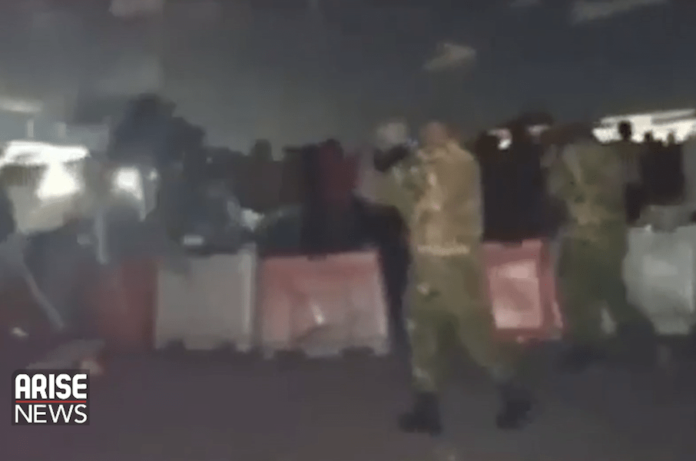By Jeph Ajobaju, Chief Copy Editor
The International Criminal Court (ICC) in Geneva has begun investigation of the killing of protesters against police brutality at Lekki toll gate in Lagos on October 20 in which soldiers shot dead at least 12 unarmed youths.
The death toll at the location was compiled by Amnesty International.
A panel set up by Lagos State Governor, Babajide Sanwo-Olu, is already on the case, taking evidence from witnesses. It has visited the sight of the shooting and the mortuary of the Nigerian Army in Yaba, Lagos.
Femi Falana (SAN) had announced after the carnage that he was compiling evidence to be presented to the ICC after exhausting legal channels in Nigeria.
BBC West Africa Correspondent, Chi Chi Izundu, disclosed on Wednesday that “the International Criminal Court has confirmed to BBC Africa that it has started a preliminary examination into the #EndSARS events in Nigeria.
“The Office of the ICC Prosecutor said it had received information on alleged crimes and the examination would ‘assess whether the legal criteria for opening an investigation under the Rome Statute… are met.’
“Officials added that the office did not usually comment on the communications it receives, but the sender had made it public.”
Izundu also confirmed the Office of the ICC prosecutor is analysing the materials sent from protesters and will announce to the public when a final decision process is reached.
ICC Prosecutor Fatou Bensouda disclosed on twitter last month that “my office has been closely following the events around the current protests in Nigeria and the reaction of Nigeria’s law enforcement and security agencies.
“Any loss of life and injury is concerning. We have received information alleging crimes and are keeping a close eye on developments, in case violence escalates and any indications arise that Rome Statute crimes may have been committed.”
Army confirms deploying troops, but denies killings
The Nigerian army admitted on October 27 its soldiers were deployed to restore order, but denied they opened fire on the peaceful protesters.
Military spokesman, Major Osoba Olaniyi, said soldiers were sent to enforce a curfew. However, he denied that the troops shot at the protesters.
“At no time did soldiers of the Nigerian army open fire on any civilian,” Olaniyi said in a statement.
He said soldiers were deployed on orders from the Lagos State government due to “violence which led to several police stations being burnt, policemen killed, suspects in police custody released and weapons carted away.”
Sanwo-Olu, however, has countered that the state has no authority over the army.
“It is imperative to explain that no governor controls the rules of engagement of the army,” he wrote on Twitter the day after the shooting.
“I have nevertheless instructed an investigation into the ordered and the adopted rules of engagement employed by the men of the Nigerian Army deployed to the Lekki Toll Gate.”
The military did not say how the soldiers intervened to curb unrest beyond denying that they shot protesters.
Amnesty published on October 28 an investigation that said it had tracked army vehicles from their Lagos barracks to Lekki toll gate using photographs and verified videos of the soldiers’ movements that had been posted on social media.
On October 20, two military vehicles were filmed leaving Bonny Camp, while later footage shows four others that appear to be used by the military and police, according to Amnesty, as reported by AlJazeera.
“What happened at Lekki Toll Gate has all the traits of the Nigerian authorities’ pattern of a cover-up whenever their defence and security forces commit unlawful killings,” said Osai Ojigho, Amnesty country director for Nigeria.
“The initial denials of the involvement of soldiers in the shooting was followed by the shameful denial of the loss of lives as a result of the military’s attack against the protests.
“Many people are still missing since the day of the incident, and credible evidence shows that the military prevented ambulances from reaching the severely injured in the aftermath.”
A soldier based in Lagos, who declined to be identified because he was not authorised to speak to the media, told Reuters that troops from the army 81st Division’s 65th Battalion, based at Bonny Camp, had fired on unarmed civilians at the toll gate.
Witnesses at Lekki described armed men in army fatigues arriving around 7pm local time at the site of the peaceful protests, where demonstrators knelt to wave flags and sing the national anthem, before the men raised their guns and shot into the crowd.




